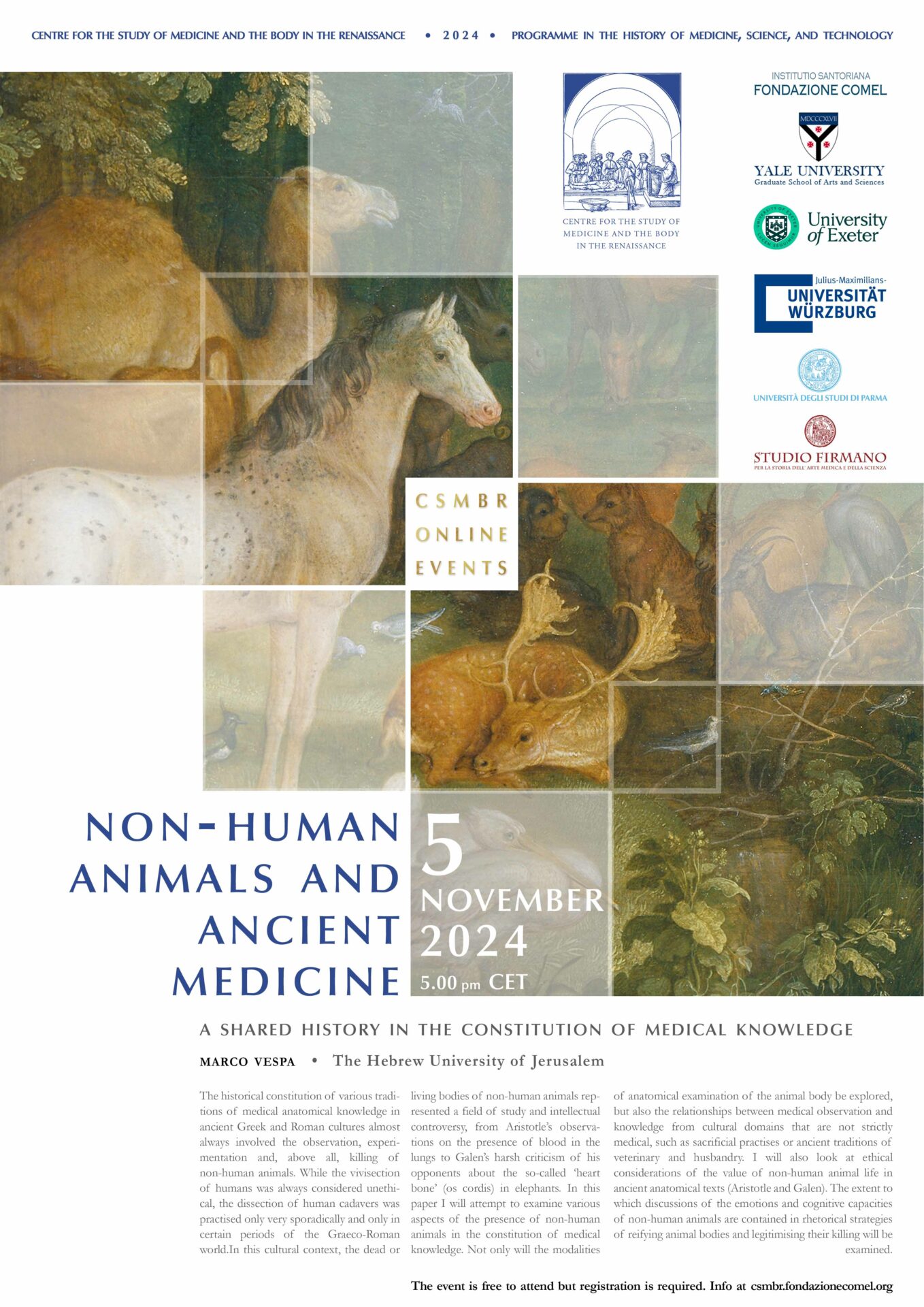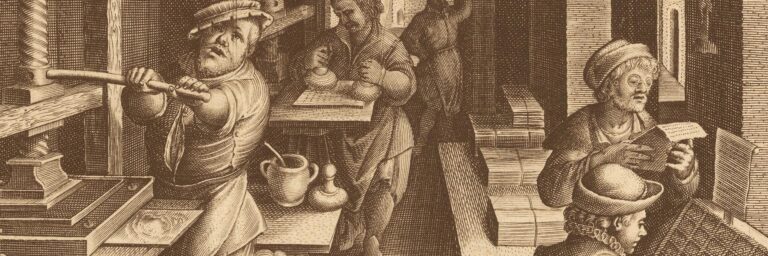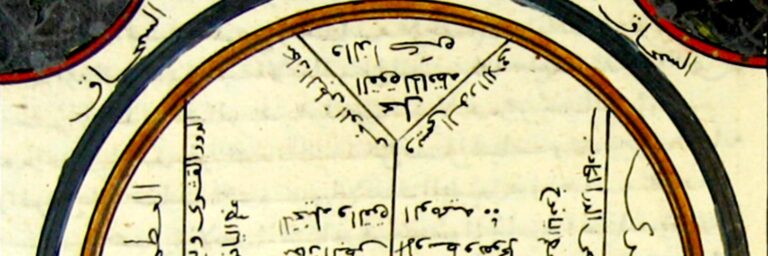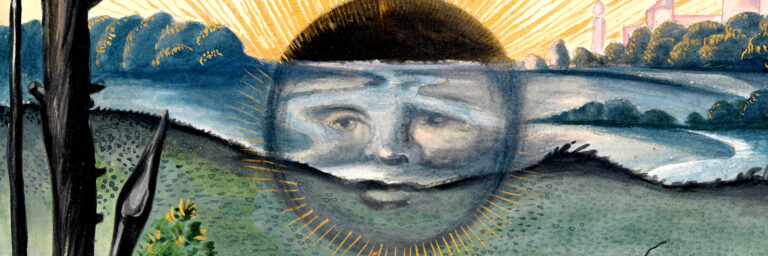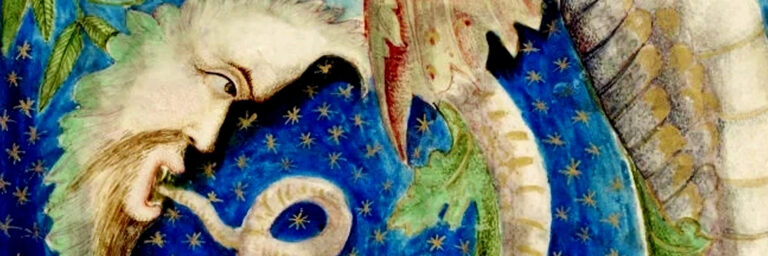Non-Human Animals and Ancient Medicine
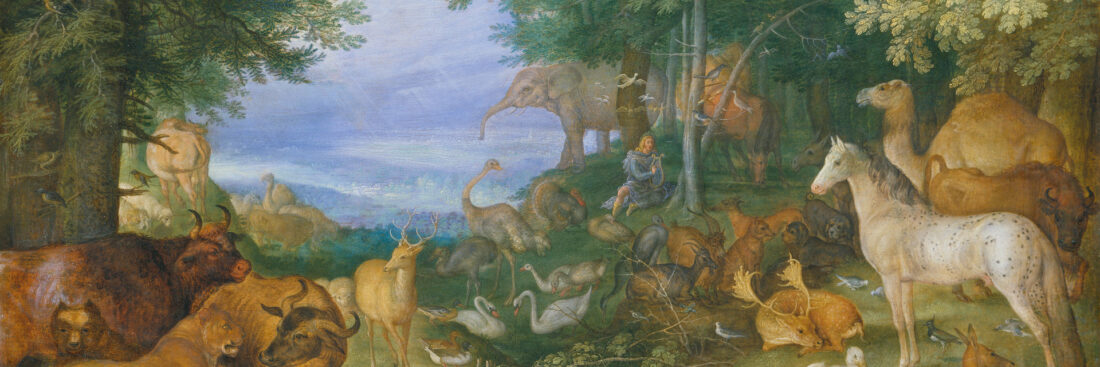
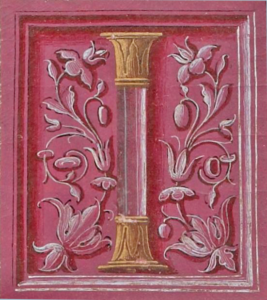
Non-Human Animals and Ancient Medicine
A Shared History in the Constitution of Medical Knowledge
Marco Vespa
5 November 2024 – 5 PM (CET)
Research for this lecture has been supported by

The historical constitution of various traditions of medical anatomical knowledge in ancient Greek and Roman cultures almost always involved the observation, experimentation and, above all, killing of non-human animals.
While the vivisection of humans was always considered unethical, the dissection of human cadavers was practised only very sporadically and only in certain periods of the Graeco-Roman world. In this cultural context, the dead or living bodies of non-human animals represented a field of study and intellectual controversy, from Aristotle’s observations on the presence of blood in the lungs to Galen’s harsh criticism of his opponents about the so-called ‘heart bone’ (os cordis) in elephants.
In this talk, I will attempt to examine various aspects of the presence of non-human animals in the constitution of medical knowledge.
Not only will the modalities of anatomical examination of the animal body be explored, but also the relationships between medical observation and knowledge from cultural domains that are not strictly medical, such as sacrificial practises or ancient traditions of veterinary and husbandry.
I will also look at ethical considerations of the value of non-human animal life in ancient anatomical texts (Aristotle and Galen). The extent to which discussions of the emotions and cognitive capacities of non-human animals are contained in rhetorical strategies of reifying animal bodies and legitimising their killing will be examined.
The importance of non-human animals in ancient cultures consisted also in that they offered therapeutic and healing responses by encouraging humans to imitate certain practices.
A final section of my talk is devoted to non-human animal models as heuristic stimuli and masters of healing in some of the medical traditions or pharmacopoeia of the ancient world.
About the Speaker ...
Marco Vespa is a postdoctoral research fellow in classics at the Hebrew University of Jerusalem and specialises in ancient Greek and Latin literatures.
His main research interests include the cultural and textual tradition of ancient Greek zoological knowledge, with special attention to the Corpus Aristotelicum, and the cultural representation of the animal world in the literary and discursive productions of Greek literature, especially comic theatre. He has recently published a monograph on the cultural representation of the monkey in ancient Greek and Graeco-Roman texts (Geloion mimēma. Studi sulla rappresentazione della scimmia nei testi greci e greco-romani, Brepols 2021) and a short anthology of ancient Greek and Latin texts on the animal world translated into Italian (I Greci, i Romani e gli animali, Carocci 2023).



